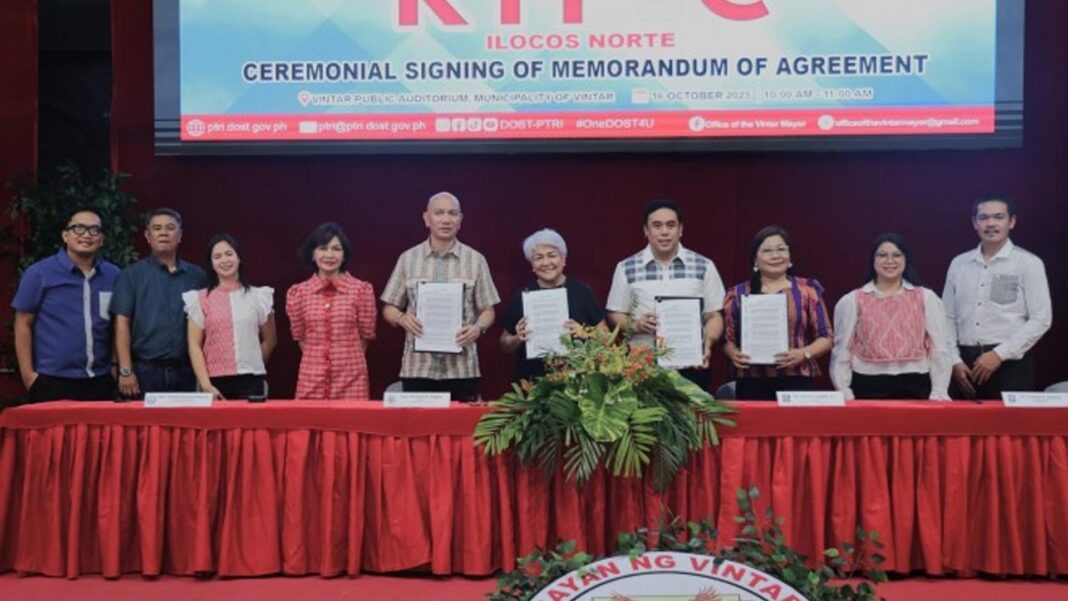The local government of Vintar, Ilocos Norte on Thursday signed a memorandum of agreement (MOA) with the Department of Science and Technology – Philippine Textile Research Institute (DOST-PTRI) for the development of a bamboo innovation and processing hub.
The partnership aims to advance local textile innovation, promote sustainability and strengthen the weaving industry across Ilocos Norte through local yarn production.
In her short speech during the ceremonial signing ceremony held at the Vintar public auditorium, Ilocos Norte Gov. Cecilia Araneta-Marcos lauded the efforts of the DOST, the Vintar government and other partner-agencies for coming up with a project meant to uplift the lives of the community.
“We’re excited for this Regional Yarn Production and Innovation Center, a breakthrough for research, innovation, and collaboration among local leaders, entrepreneurs, and partner agencies,” Marcos said.
She added that Ilocos Norte is rich with available resources that are just waiting for the right push to maximize their potential through science and technology.
Marcos emphasized the Ilocos Norte government remains fully committed to supporting textile and weaving centers to create opportunities and promote economic growth of local communities.
For his part, Vintar Mayor Richard Degala expressed gratitude to the DOST-PTRI for extending their assistance for the establishment of the Regional Yarn Production and Innovation Center (RYPIC), which is expected to commence in November this year.
“The launching of the RYPIC-Ilocos in Vintar is a big step for our municipality,” Degala said. “This will not only create jobs for our constituents but also to strengthen our local economy.”
Covering 62,482 hectares, Vintar is the largest municipality in terms of land area in Ilocos Norte, where farmer associations maintain over 5,000 bamboo clumps apart from those that thrive in the mountainous areas.
According to the DOST, Vintar was identified as the site of the yarn center for its community-based bamboo farms managed by farmers’ associations.
Other available raw materials in the province may also be considered for fiber processing to sustain the local weaving industry, the DOST said.
Under the agreement, all the project’s output will be bought by the DOST.
The DOST will also provide the processing equipment, manpower training and other technical support and assistance.
Vintar’s role, on the other hand, will be exclusive to production. (PNA)


